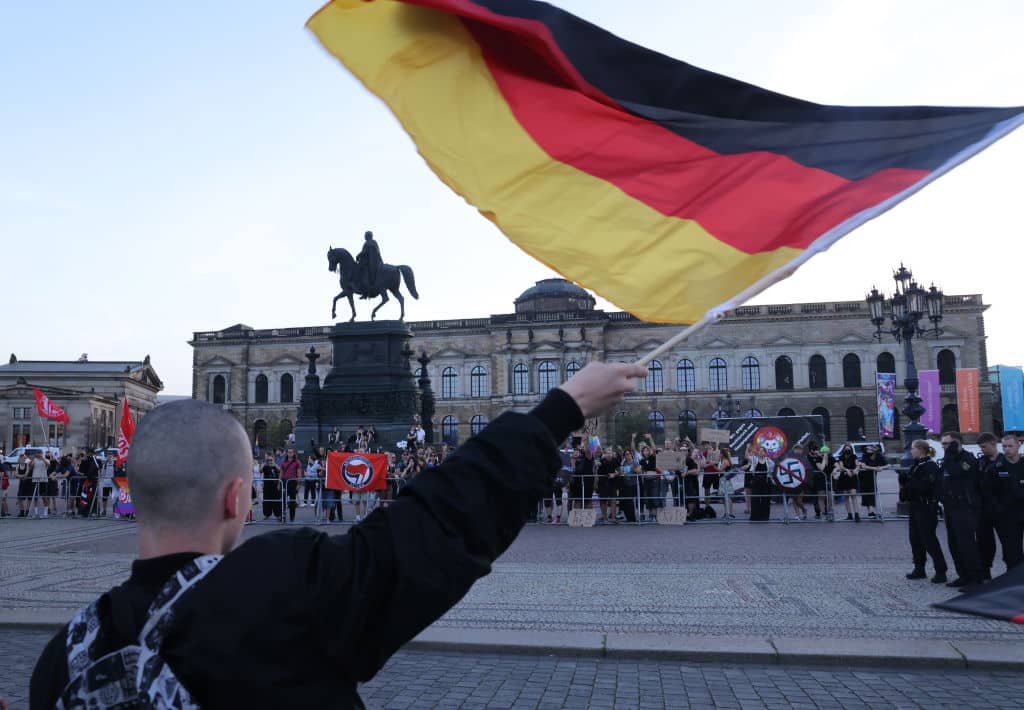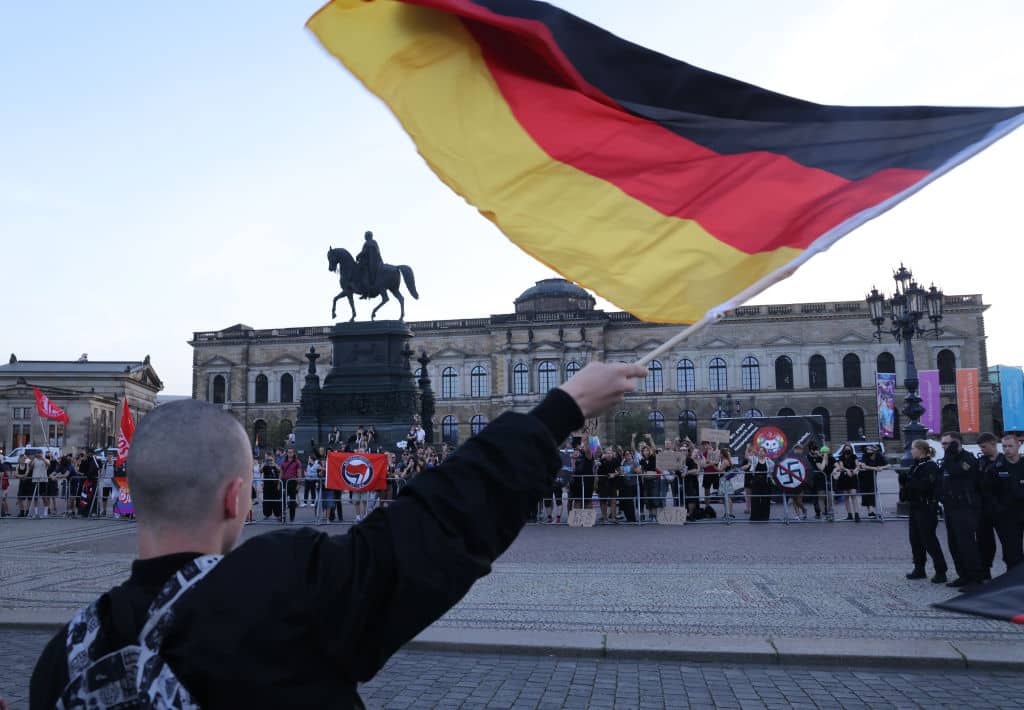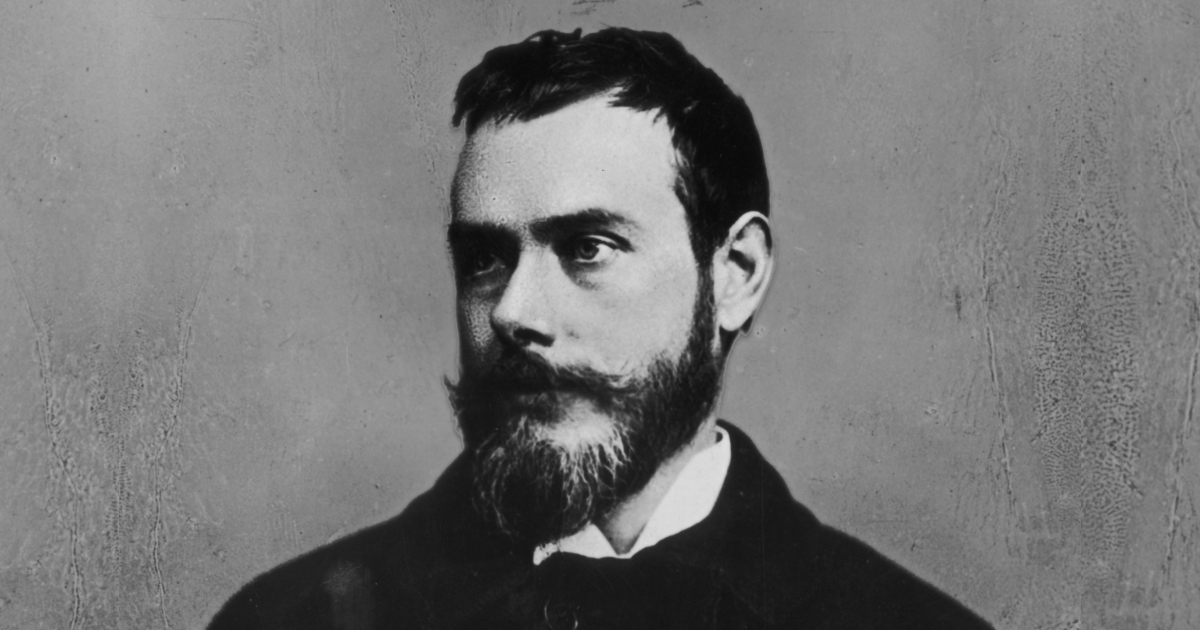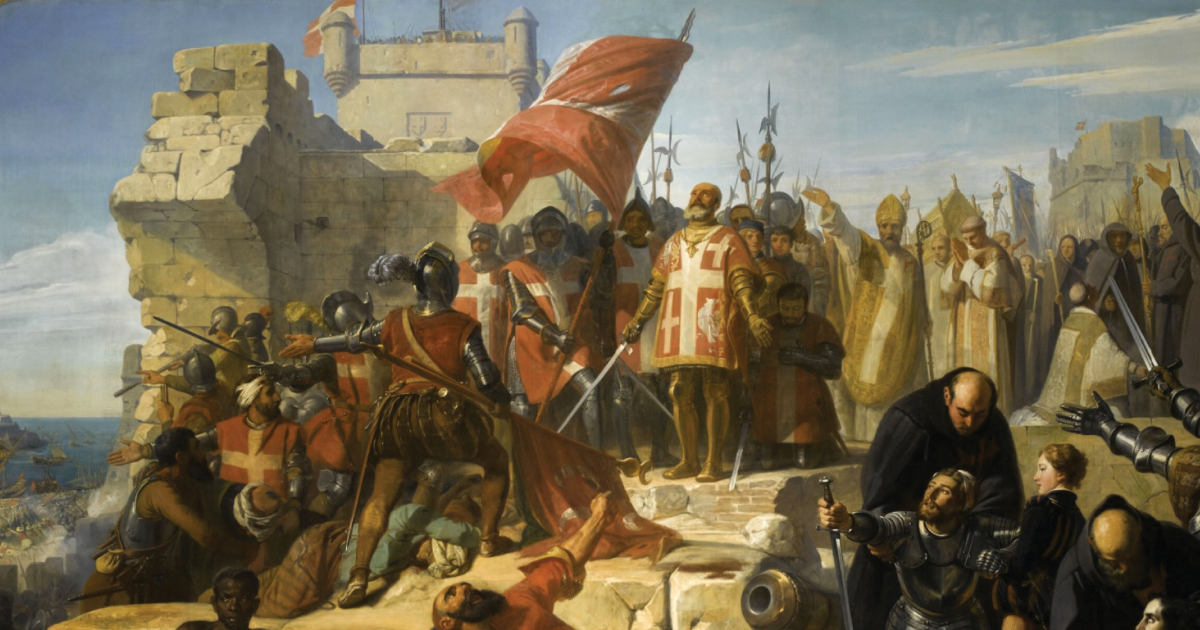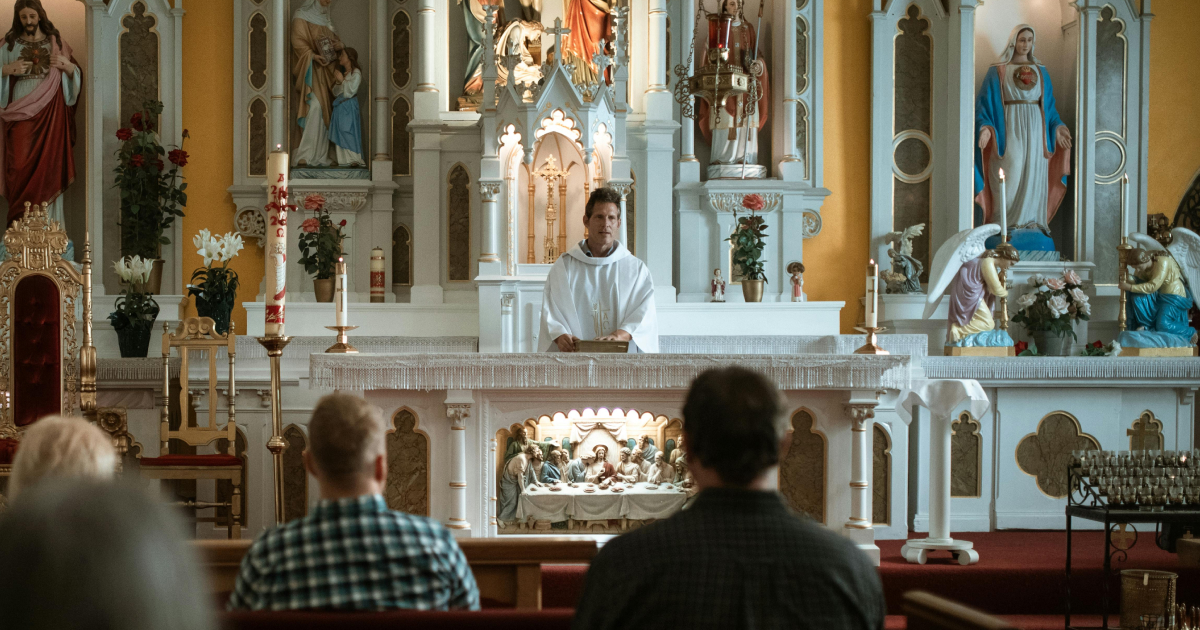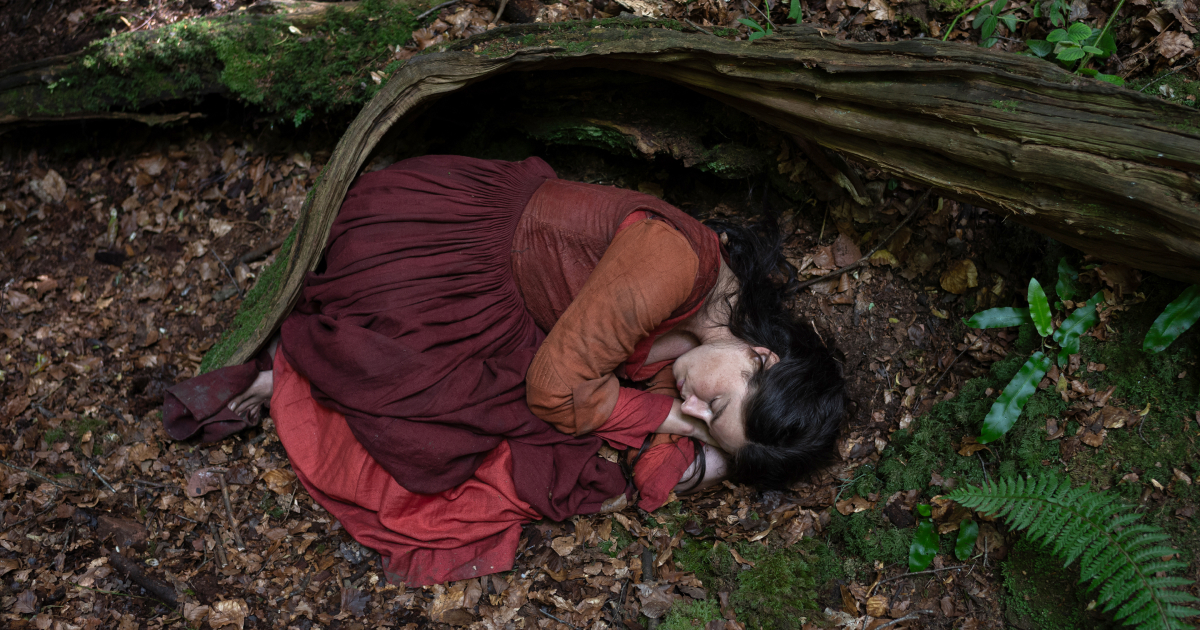The high expectations for the far-right AfD and the far-left BSW in the German polls – and which have just been borne out in the Thuringia and Saxony state elections – are unfortunately what many people in Germany and around Europe think of first when they hear about East Germany.
Of course, this is primarily a West German phenomenon, but it is also common among some East Germans. And it risks becoming a kind of self-fulfilling prophecy: If the whole world keeps telling me that I have some kind of democratic deficit, then at some point I'll believe it myself.
We must finally break out of this spiral and instead address what the polls and election results are telling us.
The five new federal states which came to contemporary Germany from East Germany – and which of course are already old – are an exciting social laboratory. This is because many trends, such as the ever-increasing de-churching of society, which have long been noticeable in the West as well, could be recognised here much earlier. And those trends have had an impact in how the AfD and BSW just performed.
Alternative für Deutschland (Alternative for Germany) has just given the German Far-Right its first state election victory since WWII by winning in Thuringia and it came a close second in Saxony behind the Christian Democratic Union of Germany (CDU). While Bündnis Sahra Wagenknecht, the left-wing populist and socially conservative Reason and Justice party, performed well and came third in both states.
In properly assessing what is going on, the first step is to take pride in our shared history. It is frightening that even almost 35 years after reunification, people still differentiate between West and East Germans. Of course, the totalitarian burden of the communist-led German Democratic Republic (GDR), which the Germans there had to bear on behalf of their compatriots in the West, continues to have an impact.
But the historical truth is that it was not an individual achievement to live and be born in the territory of the Federal Republic, but a matter of luck. So anyone who now arrogantly looks towards Saxony, Thuringia or Brandenburg because of the alleged democratic deficits there should first take a good look at themselves.
After all, where did the only successful freedom revolution in German history come from? There are countless heroes of freedom living in our country who through their opposition overthrew the Socialist Unity Party of Germany (SED) regime that dominated the GDR.
Do we remember this enough? Are we even ever proud of it? Do we even draw the strength of example from this historical experience to compliment the tasks of the future that require the same spirit of freedom? There is still a lot to do in that regard; the annual celebratory speeches on 3 October each year are not enough.
A second point: flexibility, willingness to change, courage to take off – all slogans that should not be missing from any start-up seminar for young entrepreneurs today. Who has demonstrated precisely these basic attitudes in an exemplary manner? The people who, in many cases, had to build a completely new life for themselves and their families after the collapse of the GDR.
Because after the sudden capitulation of the East German regime, none of what was true yesterday was suddenly the case anymore for its entire population. Everything changed overnight. But the people of East Germany did not despair, and generally mastered the challenges well, despite all the efforts that this path entailed. The subsequent "blossoming landscapes" have long been recognisable. And we should be happier about that fact and acknowledge it more.
Another consequence of this development is that East Germany is in some ways more modern than West Germany: because it felt the upheavals of our changing times much earlier and much more dramatically than the West, and above all had to somehow overcome them.
The subsequent "social laboratory" element, and which was mentioned earlier, also applies to politics. It may be disturbing what form this is now taking, with the rise of AfD and BSW and the loss of the middle ground; but it is obvious that the party spectrum is changing in East Germany and that this will soon have consequences for the rest of the country.
We must not stand in front of these changes frozen with our mouths open, like a rabbit in front of a snake. We must come together, West and East, to discuss what these developments mean for us. And without foaming at the mouth; without aggression. It's actually quite simple what needs to be done.
Photo: A supporter of the Alternative for Germany (AfD) political party waves a German flag at leftist, protesters following the final AfD Saxony election rally prior to state elections, Dresden, Germany, 29 August 2024. At the time, the AfD was leading in polls in both Saxony and Thuringia ahead of state elections scheduled for 1 September 2024 in both states. (Photo by Sean Gallup/Getty Images.)
Sebastian Sasse is head of domestic politics at the ‘Die Tagespost’. After studying modern history, philosophy and German studies in Essen, he worked as a journalist for the ‘Neue Ruhr Zeitung’, among others. Since November 2018, he has been responsible for the politics section and the ‘Economy & Social Affairs’ page at ‘Die Tagespost’. He primarily writes about German domestic politics.
This article originally appeared in the weekly newspaper Die Tagespost, Germany’s leading Catholic newspaper for politics, society and culture; it is reproduced here with kind permission. Die Tagespost also runs the Tagespost Foundation for Catholic Journalism and the Pope Benedict XVI Institute.
The high expectations for the far-right AfD and the far-left BSW in the German polls – and which have just been borne out in the Thuringia and Saxony state elections – are unfortunately what many people in Germany and around Europe think of first when they hear about East Germany.
Of course, this is primarily a West German phenomenon, but it is also common among some East Germans. And it risks becoming a kind of self-fulfilling prophecy: If the whole world keeps telling me that I have some kind of democratic deficit, then at some point I'll believe it myself.
We must finally break out of this spiral and instead address what the polls and election results are telling us.
The five new federal states which came to contemporary Germany from East Germany – and which of course are already old – are an exciting social laboratory. This is because many trends, such as the ever-increasing de-churching of society, which have long been noticeable in the West as well, could be recognised here much earlier. And those trends have had an impact in how the AfD and BSW just performed.
Alternative für Deutschland (Alternative for Germany) has just given the German Far-Right its first state election victory since WWII by winning in Thuringia and it came a close second in Saxony behind the Christian Democratic Union of Germany (CDU). While Bündnis Sahra Wagenknecht, the left-wing populist and socially conservative Reason and Justice party, performed well and came third in both states.
In properly assessing what is going on, the first step is to take pride in our shared history. It is frightening that even almost 35 years after reunification, people still differentiate between West and East Germans. Of course, the totalitarian burden of the communist-led German Democratic Republic (GDR), which the Germans there had to bear on behalf of their compatriots in the West, continues to have an impact.
But the historical truth is that it was not an individual achievement to live and be born in the territory of the Federal Republic, but a matter of luck. So anyone who now arrogantly looks towards Saxony, Thuringia or Brandenburg because of the alleged democratic deficits there should first take a good look at themselves.
After all, where did the only successful freedom revolution in German history come from? There are countless heroes of freedom living in our country who through their opposition overthrew the Socialist Unity Party of Germany (SED) regime that dominated the GDR.
Do we remember this enough? Are we even ever proud of it? Do we even draw the strength of example from this historical experience to compliment the tasks of the future that require the same spirit of freedom? There is still a lot to do in that regard; the annual celebratory speeches on 3 October each year are not enough.
A second point: flexibility, willingness to change, courage to take off – all slogans that should not be missing from any start-up seminar for young entrepreneurs today. Who has demonstrated precisely these basic attitudes in an exemplary manner? The people who, in many cases, had to build a completely new life for themselves and their families after the collapse of the GDR.
Because after the sudden capitulation of the East German regime, none of what was true yesterday was suddenly the case anymore for its entire population. Everything changed overnight. But the people of East Germany did not despair, and generally mastered the challenges well, despite all the efforts that this path entailed. The subsequent "blossoming landscapes" have long been recognisable. And we should be happier about that fact and acknowledge it more.
Another consequence of this development is that East Germany is in some ways more modern than West Germany: because it felt the upheavals of our changing times much earlier and much more dramatically than the West, and above all had to somehow overcome them.
The subsequent "social laboratory" element, and which was mentioned earlier, also applies to politics. It may be disturbing what form this is now taking, with the rise of AfD and BSW and the loss of the middle ground; but it is obvious that the party spectrum is changing in East Germany and that this will soon have consequences for the rest of the country.
We must not stand in front of these changes frozen with our mouths open, like a rabbit in front of a snake. We must come together, West and East, to discuss what these developments mean for us. And without foaming at the mouth; without aggression. It's actually quite simple what needs to be done. <br><br><em>Photo: A supporter of the Alternative for Germany (AfD) political party waves a German flag at leftist, protesters following the final AfD Saxony election rally prior to state elections, Dresden, Germany, 29 August 2024. At the time, the AfD was leading in polls in both Saxony and Thuringia ahead of state elections scheduled for 1 September 2024 in both states. (Photo by Sean Gallup/Getty Images.)</em>
<em>Sebastian Sasse is head of domestic politics at the ‘Die Tagespost’. After studying modern history, philosophy and German studies in Essen, he worked as a journalist for the ‘Neue Ruhr Zeitung’, among others. Since November 2018, he has been responsible for the politics section and the ‘Economy & Social Affairs’ page at ‘Die Tagespost’. He primarily writes about German domestic politics.</em>
<strong>This article originally appeared in the weekly newspaper <em><a href="https://www.die-tagespost.de/"><mark style="background-color:rgba(0, 0, 0, 0)" class="has-inline-color has-vivid-cyan-blue-color">Die Tagespos</mark>t</a></em>, Germany’s leading Catholic newspaper for politics, society and culture; it is reproduced here with kind permission. <em>Die Tagespost</em> also runs the Tagespost Foundation for Catholic Journalism and the <a href="https://www.benedictusxvi.com/editorial"><mark style="background-color:rgba(0, 0, 0, 0)" class="has-inline-color has-vivid-cyan-blue-color">Pope Benedict XVI Institute</mark></a>.</strong>





